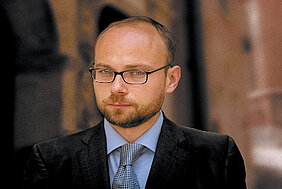Archiv Vorträge

Vortrag von Prof. Dr. hab. Artur Wolek (Kraków): On peculiarities of Polish survey research of politics
Dienstag, 7. Juni 2016, 14.00 Uhr, HS 5, Carl-Zeiß-Str. 3, FSU Jena (in Zusammenarbeit mit dem Institut für Politikwissenschaft)
Opinion polling in Poland has developed into a genuine industry since 1989. Its output is usually considered a reliable picture of Polish society but survey results strikingly often disappoint as predictors of electoral behavior. Peculiarities of Polish survey research on political opinions and attitudes may explain to some extent its spectacular failures but they still surprise both researchers and politicians. In the early 1990s the peculiarities used to be connected to the communist past and a perception of the survey research as an instrument in the hands of power holders. Respondents anticipating expected answers were able to outwit even seasoned researchers. This attitude ceased to be important a decade ago but Poles still mislead pollsters when asked about politics. Moreover, a fast and intensive differentiation of Polish society makes sampling more difficult and invites new dangers linked to the execution of surveys. Apparently they are less and less Polish post-communist idiosyncrasies. In the light of pollsters failures during recent British and especially Austrian elections their explanation may be instructive for understanding new (?) kind of European politics.
Artur Wolek (1971) is the public policy and administration professor and vice-dean at the Jesuit University of Krakow Ignatianum; he also co-ordinates Central European programmes at the Centre for Political Thought in Krakow. Previously, he was among others a speech-writer to the mayor of Krakow, an advisor with the Prime Minister's Office for Constitutional Reform, a director at the Windsor Group, a think tank. His research is focused on an institutional dimension of the policy-making process and its consequences for the quality of public policies in Poland and Central Europe, a topic assuming an extensive use of quantitative data among others. He authored two books (Weak State and Informal Democracy: Constitutionalism and the Effective Rules of Politics in Central Europe after 1989) and edited several other (Homework Not Done. Public Policies in Poland and the Czech Republic with Ondrej Krutilek; Fruitless Alliance. Poland and the Czech Republic in the European Union with Ondrej Krutilek; A Successful Transformation in Peripheries? with Justinas Dementavičius; Reformers and Politicians: the Power Play for the 1998 Reform of Public Administration in Poland as Seen by Its Main Players)